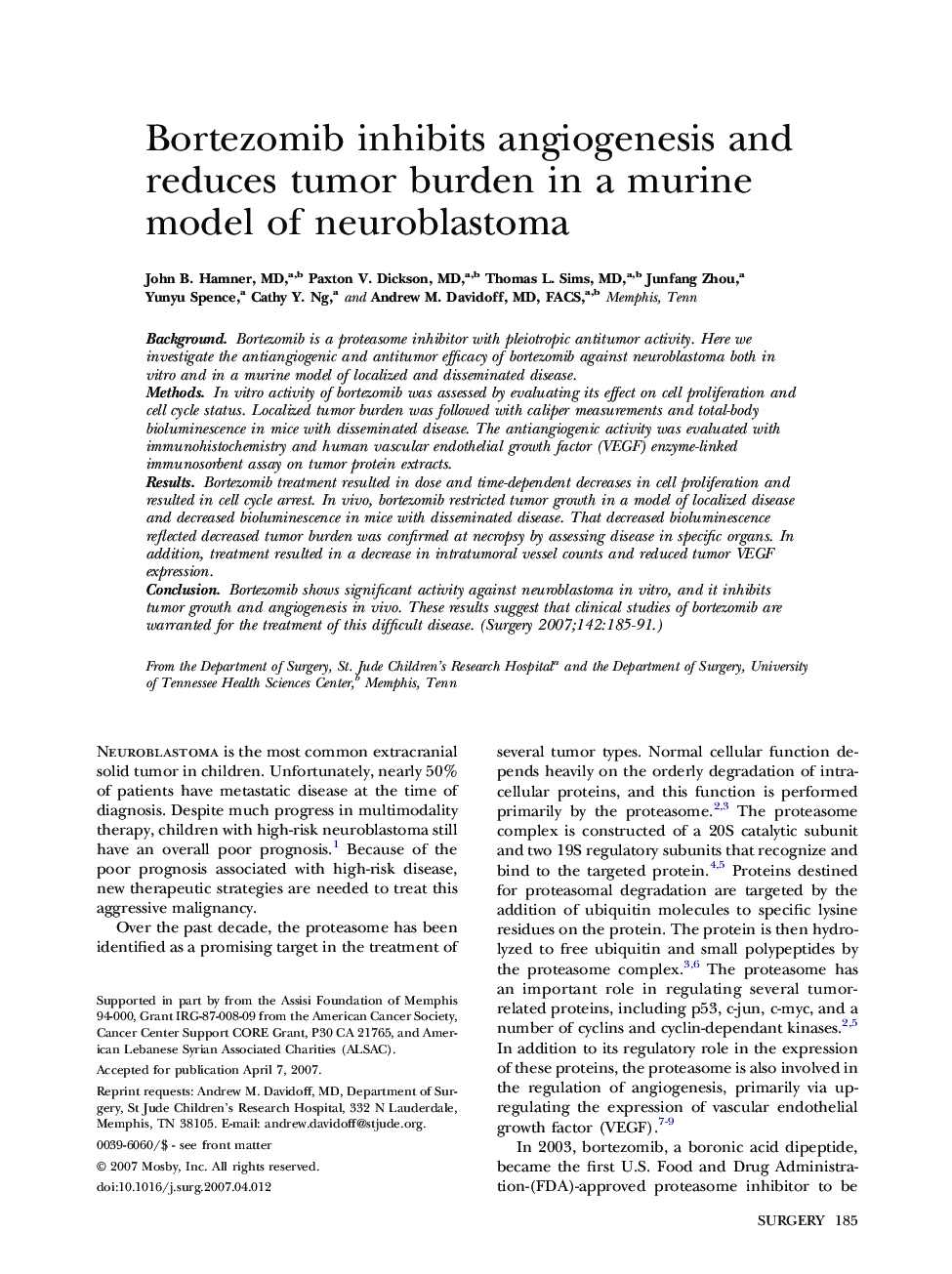| Article ID | Journal | Published Year | Pages | File Type |
|---|---|---|---|---|
| 4310329 | Surgery | 2007 | 7 Pages |
BackgroundBortezomib is a proteasome inhibitor with pleiotropic antitumor activity. Here we investigate the antiangiogenic and antitumor efficacy of bortezomib against neuroblastoma both in vitro and in a murine model of localized and disseminated disease.MethodsIn vitro activity of bortezomib was assessed by evaluating its effect on cell proliferation and cell cycle status. Localized tumor burden was followed with caliper measurements and total-body bioluminescence in mice with disseminated disease. The antiangiogenic activity was evaluated with immunohistochemistry and human vascular endothelial growth factor (VEGF) enzyme-linked immunosorbent assay on tumor protein extracts.ResultsBortezomib treatment resulted in dose and time-dependent decreases in cell proliferation and resulted in cell cycle arrest. In vivo, bortezomib restricted tumor growth in a model of localized disease and decreased bioluminescence in mice with disseminated disease. That decreased bioluminescence reflected decreased tumor burden was confirmed at necropsy by assessing disease in specific organs. In addition, treatment resulted in a decrease in intratumoral vessel counts and reduced tumor VEGF expression.ConclusionBortezomib shows significant activity against neuroblastoma in vitro, and it inhibits tumor growth and angiogenesis in vivo. These results suggest that clinical studies of bortezomib are warranted for the treatment of this difficult disease.
